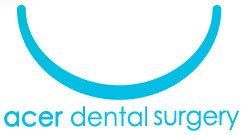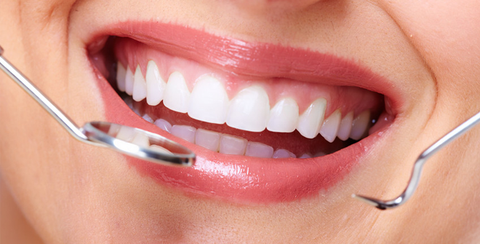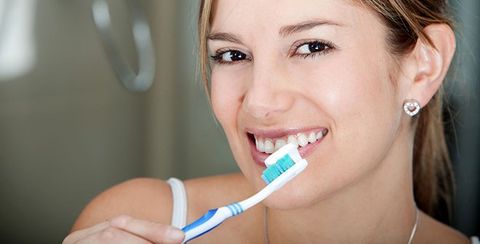General Dentistry
Qualified and experienced dentist in Basildon
Acer Dental Practice is a well-established dental practice in Basildon, Essex.
Our dentist is highly qualified and experienced in general dental treatments, cosmetic dentistry and facial aesthetics. We are a very professional and modern practice, providing a high standard of oral treatment and care. Why not call our Basildon dental surgery to book an appointment?
General Dental Treatments
- Registration and Routine Inspections
- Tooth Coloured Fillings
- Veneers
- Crown and Bridgework
- Dentures
- Root Canal Treatment
- Periodontal (gum) Treatment
- Management of Erosion Abrasion and
- Attrition of the Dentition
- Surgical Procedures
- Full Mouth Rehabilitation
Providing professional dental care
Oral care
As well as maintaining excellent oral hygiene, it is also important that you see an expert regularly to check that your mouth is healthy and that any problems can be dealt with before they become serious. We therefore advise our patients to plan regular visits to the dentist.
We offer the full range of preventive and cosmetic dentistry
at our dental surgery, along with our facial aesthetics
service.
Routine Inspections
Great oral hygiene is an essential part of maintaining a healthy smile and keeping your natural teeth for as long as possible. Preventative measures help safeguard against decay and bacteria build up and may prevent the need for more extensive treatment later on in life.
We will give you the knowledge so you can achieve and maintain a healthy mouth and with regular check ups, any problems can be dealt with before they become serious.
At your first appointment with us, we will take a full medical history, discuss any dental issues you may have, do a full chart of existing dental work, check the health of your gums and soft tissue, take check x-rays and then discuss any treatment required, giving you the opportunity to ask any questions you may have.
Regular check ups with your Dentist are very important, it's much better to deal with problems early and ideally even prevent them happening altogether.
You can rely on our experience and our professional service. Contact us today to arrange an initial consultation, and get the smile that you deserve.
What are dental veneers, crowns and bridges?
A dental veneer is a thin layer of tooth coloured material made from either composite or dental porcelain that is put onto the front of the tooth to make it look better. The tooth may have been discoloured or damaged by decay or an accident.
They can improve the appearance of a tooth without having to remove too much of the natural tooth.
Dental crowns and bridges help improve the function of teeth. Dental crowns are dental porcelain caps fitted to protect damaged or cracked teeth and to improve their aesthetics. Dental bridges are a means of bridging a gap between teeth. They can be made from metal, porcelain or porcelain with metal inside for strength.
Veneers, bridges and crowns in Basildon
At Acer Dental Practice, we understand the effect discoloured, chipped or cracked teeth can have on your confidence, that's why we provide effective cosmetic procedures that improve your smile and your confidence.
You can rely on our experience and our professional service, contact us today to arrange an initial consultation, and get the smile that you deserve.
Dentures or False Teeth
Complete Dentures
Complete dentures can be either "conventional" or "immediate". Made after the teeth have been removed and the gum tissue has begun to heal, a conventional denture is ready for placement in the mouth about eight to 12 weeks after the teeth have been removed. Unlike conventional dentures, immediate dentures are made in advance and can be positioned as soon as the teeth are removed. As a result, the wearer does not have to be without teeth during the healing period.
However, bones and gums shrink over time, especially during the healing period following tooth removal. Therefore a disadvantage of immediate dentures compared with conventional dentures is that they require more adjustments to fit properly during the healing process and generally should only be considered a temporary solution until conventional dentures can be made.
Partial Dentures
How are dentures made?
The denture development process takes about three to six weeks and several appointments. Once your dentist determines what type of appliance is best for you, the general steps are to:
Complete dentures can be either "conventional" or "immediate". Made after the teeth have been removed and the gum tissue has begun to heal, a conventional denture is ready for placement in the mouth about eight to 12 weeks after the teeth have been removed. Unlike conventional dentures, immediate dentures are made in advance and can be positioned as soon as the teeth are removed. As a result, the wearer does not have to be without teeth during the healing period.
However, bones and gums shrink over time, especially during the healing period following tooth removal. Therefore a disadvantage of immediate dentures compared with conventional dentures is that they require more adjustments to fit properly during the healing process and generally should only be considered a temporary solution until conventional dentures can be made.
Partial Dentures
A removable partial denture or bridge usually consists of replacement teeth attached to a pink or gum-coloured plastic base, which is connected by metal framework that holds the denture in place in the mouth. Partial dentures are used when one or more natural teeth remain in the upper or lower jaw. A fixed (permanent) bridge replaces one or more teeth by placing crowns on the teeth on either side of the space and attaching artificial teeth to them. This "bridge" is then cemented into place. Not only does a partial denture fill in the spaces created by missing teeth, it prevents other teeth from changing position. A precision partial denture is removable and has internal attachments rather than clasps that attach to the adjacent crowns. This is a more natural-looking appliance.
Are there alternatives to Dentures?
Yes. Dental Implants can be used to support permanently cemented bridges, eliminating the need for a denture. The cost is usually greater, but the implants and bridges more closely resemble the teeth. Dental Implants are becoming the alternative to dentures, but not everyone is a candidate for implants.
Yes. Dental Implants can be used to support permanently cemented bridges, eliminating the need for a denture. The cost is usually greater, but the implants and bridges more closely resemble the teeth. Dental Implants are becoming the alternative to dentures, but not everyone is a candidate for implants.
How are dentures made?
The denture development process takes about three to six weeks and several appointments. Once your dentist determines what type of appliance is best for you, the general steps are to:
Make a series of impressions of your jaw and take measurements of how your jaws relate to one another and how much space is between them.
Create models, wax forms, and/or plastic patterns in the exact shape and position of the denture to be made. You will "try in" this model several times and the denture will be assessed for colour, shape and fit before the final denture is cast.
Cast a final denture.
Adjustments will be made as necessary.
Acrylic Dentures
Acrylic dentures are a great way to replace missing teeth and can be added to easily, if you have one or several gaps and think that the remaining teeth may also be lost in time, then an acrylic denture is one way to have the flexibility of adding teeth without breaking the bank.
They look very natural.
They can be used to replace one, a few or all of your teeth.
They are quick to make, temporary dentures can be done in as quick as a week.
Chrome Cobalt Denture
Chrome Cobalt Dentures are a metal base plate, onto which natural looking teeth are added with acrylic.
The Chrome Cobalt are metal dentures, due to the material they are made of they are slimmer than the Acrylic dentures.
They stay in place better and are more secure.
Easier than acrylic teeth for eating as they move less.
They do require you to have some existing teeth to attach to and can be harder to attach teeth to later.
TCS Flexible Dentures
TCS are flexible partial dentures, they are made of an extremely resilient high performing nylon material.
TCS are flexible partial dentures, they are made of an extremely resilient high performing nylon material.
Its pink translucent shades allows the appliance to blend naturally with surrounding tissue and gums.
The process to make these dentures is very similar to the Acrylic and Chrome Cobalt Dentures.
They are thin, flexible and lightweight.
They cover less of the palate than other dentures which makes them extremely comfortable to wear.
They are not an option for where a large amount of teeth are missing, they work best for small to medium sized gaps.
Root Canal Treatment
Have you been told you need root canal treatment?
Millions of teeth are saved each year with Root Canal Treatment. So that you understand the procedure, it helps to know a bit about the tooth.
The outer surface of the tooth is the enamel, under this you have a layer called the dentin, under this layer is soft tissue called the pulp. The pulp is made up of blood vessels, nerves and connective tissue which aids the growth of the tooth, a fully developed tooth can survive without the pulp as it is nourished by the surrounding tissues.
Endodontic treatment (root canal treatment) is necessary when the pulp becomes inflamed or infected, this can be caused by deep decay, repeated dental procedures on the tooth, faulty crowns or a broken tooth. Pulp damage can also be caused if the tooth suffers any trauma, even if there is no obvious damage to the tooth. If left untreated pulp inflammation or infection can cause pain or an abscess.
How does Root Canal Treatment save the tooth?
Root Canal Treatment is the removal of the inflamed or infected pulp using narrow files, the inside of the tooth is cleaned and debris is flushed out with an anti-bacterial solution and then sealed with a rubber like material called gutta-percha. Afterwards the tooth is restored with a filling or crown.
Saving a tooth with Root Canal Treatment has many advantages, such as efficient chewing, natural appearance and protects the other teeth from excessive wear. It enables you to maintain your natural smile and you can continue to eat as normal.
The Root Canal Procedure feels no different to a routine filling and usually takes two appointments, depending on the condition of the tooth. Patients can expect to be comfortable during the procedure and after your appointment.
You can rely on our experience and our professional service, contact us today to arrange an initial consultation, and get the smile that you deserve.
What is Periodontal (gum) treatment?
Periodontal treatment is the specialist cleaning of your gums and teeth to control the bacteria that cause gum disease. The bacteria stick to the teeth, irritate the gums and make them bleed. If not treated, gum disease can eventually destroy gum and bone which support your teeth.
What is involved in periodontal treatment?
Bacteria causes tartar (calculus) build up. This will be removed from above the gum line. If the disease has affected the support for your teeth, the bacteria and calculus from beneath the gum line will be removed. This cleaning involves the use of powered and hand operated cleaning instruments on the tooth surface. If you experience discomfort whilst having your cleaning then the dentist may decide to give an injection to numb the gums.
The amount of appointments will depend on the severity of the disease, if the gum disease is aggressive then antibiotics may be necessary. The patient is also taught the best method of tooth and gum cleaning to remove bacteria and treatment will be most effective if teeth are cleaned thoroughly.
The amount of appointments will depend on the severity of the disease, if the gum disease is aggressive then antibiotics may be necessary. The patient is also taught the best method of tooth and gum cleaning to remove bacteria and treatment will be most effective if teeth are cleaned thoroughly.
After the treatment as the gums become healthier they may shrink or recede and the teeth may appear longer. You may notice spaces appear between the teeth.
Advantages of periodontal treatment
Gums will be healthier which will help you keep your teeth for longer.
Gums will no longer bleed and be red and swollen.
Breath may become fresher.
If teeth are loose they may feel firmer.
Breath may become fresher.
If teeth are loose they may feel firmer.
There is no other treatment for gum disease. If left, the gum disease may become worse and this can lead to the teeth becoming painful or eventually being removed.
Disadvantages of periodontal treatment
For a few days after treatment the gums can feel sore.
The teeth can become sensitive to hot and cold, this usually decreases within a few weeks.
Contact us today to book a consultation or if you require more information.
Extractions
When a tooth can not be saved, extraction may be the only course of treatment. Some reasons a tooth may need to be extracted:
A crowded mouth – you may need extractions to prepare the mouth for Orthodontics.
Infection – If tooth decay or damage extends to the pulp, bacteria from the mouth can enter the pulp and cause infection.
Risk of Infection – If your immune system is compromised even the risk of infection can be a reason to remove the tooth.
Periodontal (gum) disease – This can cause loosening of the teeth that may lead to an extraction.
How it's done
The Dentist will give you an injection of local anesthetic to numb the area where the tooth will be removed. The Dentist will use forceps to grasp the tooth and rock it back and forth to loosen it from the jaw bone. Once the tooth is removed you will be asked to bite on a gauze pad to help stop the bleeding.
After a tooth is extracted a blood clot forms, if this blood clot breaks loose, it exposes the socket, this condition is called a dry socket, if this happens the Dentist will place a dressing to protect it as a new clot forms.
Complex Extractions
Some teeth are more difficult to take out than others because of the size, shape, position in the mouth or the shape of their roots, Some other reasons for a more complex extraction can be:
Heavily decayed teeth
Severely broken teeth
Wisdom teeth (third molars) are the last teeth to come through. They may not erupt, or emerge from the gums until your late teens or early twenties if they erupt at all. Most often, they are impacted or trapped in the jawbone and gums usually because there's not enough room for them in your mouth.
How it's Done
The Dentist will give you an injection of local anesthetic to numb the area. Due to the difficulty of the extraction, the Dentist may need to cut away gum and bone tissue, so he can grasp the tooth to rock it back and forth to loosen it from the jaw bone. Sometimes a few stitches may be placed to close the gum edges over the extraction site.
Risks
After a tooth is extracted a blood clot forms, if this blood clot breaks loose, it exposes the socket, this condition is called a dry socket, if this happens the Dentist will place a dressing to protect it as a new clot forms.
Other complications include:
Pain, Bleeding or Swelling.
Infection.
Bone chips or fragments.
Nerve Injury which is very rare and usually temporary.
Soft Tissue Procedures
A soft tissue procedure is a minor surgery that does not involve teeth or bone. It might involve the complete removal of a lesion such as a small swelling or alternatively, a representative piece might be taken of a larger or more widespread lesion for the purposes of investigation.
The soft tissue that has been removed will be sent to an appropriate laboratory for examination under a microscope. A report will then be prepared regarding the nature of the lesion.
Franectomy
A frenum is a fold of tissue in the mouth, found under the tongue, between the two upper front teeth and on the sides of the gum. A Franectomy is when this fold of tissue is removed. Removing the frenum does not affect function. Some reasons a Franectomy may be necessary include:
A tight Frenum under the tongue - this condition is called tongue tie or ankyloglossia. This condition can affect infants feeding and later on can affect a child as they learn to talk.
Frenum attached between the upper front teeth - This may cause problems when a childs permanent teeth emerge from the gum around the age of 6/7 years. It may cause a gap between the teeth or the teeth may not be able to erupt.
Frenum inside the lower lip may pull gum away from lower front teeth - this is less common, it may lead to gum problems.
Frenum can interfere with the fit of a denture - This can occur anywhere in the mouth, but is usually seen on the sides of either the top or bottom jaw.
How it's Done
The Dentist will give you an injection of local anesthetic to numb the area and use a scalpel to remove the frenum. A few stiches are placed and a gauze pad is applied to help stop the bleeding. The surgery can be done in as little as 10-15 minutes. Generally a Franectomy heals with no problems and with little pain.
Risks
If the operation does not solve the problem, it may need to be redone.
Bleeding and infection are a risk of any procedure.
A Franectomy in the lower jaw to correct the fit of a denture can bruise the nerve that gives the feeling to the lower lip and chin, this is very rare.
Apicectomy
Each tooth is anchored into the jaw bone by roots. If the root canals become infected they may require a root canal treatment. Sometimes a root canal treatment can fail, which leads to an apicectomy. This can prevent a tooth from being extracted. An apicectomy is when the root tip or apex is removed, the area is substituted with a filling to ensure the root ending is completely sealed.
How it's Done
Before the treatment you will attend a consultation appointment where the procedure is fully explained, a number of X-rays will be taken. The Dentist will give you an injection of local anesthetic to numb the area, the gum surrounding the tooth will be removed and the infected tissue is then extracted. The canals are cleaned and the tip of the root is cut away and a filling is placed before the tissue is stiched back into place.
Risks
Risks
If the apicecomy is unsuccessful then you will require an extraction.
Treatment on teeth at the back of the upper jaw may have an impact on your sinuses.
Treatment on the back teeth on the lower jaw carry a risk of nerve damage.
Swelling and pain in the treatment area.
Small pimples around the tooth can be a sign of infection, they are called fistulas and they can be drained to remove the infection.
Contact us today to book a consultation or if you require any other information about any of these procedures.
Full Mouth Rehabilitation
This course of treatment is usually considered when the dentition is severely compromised and involves a combination of advanced techniques to provide our patients with the most beautiful, natural looking and best functioning teeth. We use the latest treatments, along with the best available materials and advanced techniques.
Invariably this addresses all the issues necessary to provide the patients with a healthy, functional and aesthetic dentition.
The process begins with an in-depth examination which includes taking a full medical and dental history. We will discuss any dental issues and expectations you may have with regards to the outcome of your treatment. We will carry out a full intra and extra oral examination which will include a full dental chart, radiographs, periodontal assessment, impressions for study models, a bite record and photographs. Once we have all the available information, we will produce a treatment plan outlining the treatment options which will be discussed with the patient in detail.
You will have the opportunity to discuss the plan in detail to ensure you understand the treatment proposed and to consider various options.
You can rely on our experience and our professional service, contact us today to arrange an initial consultation, and get the smile that you deserve.
I'm a very nervous patient and haven't had many good experiances with dentist in my life but that all changed. I cant thank the staff and the dentist for their patience with me and the quality of dentistry for a emergency appointment was perfect. the after care was the same very good made me feel safe that ive booked a check up thank you Acer Dental Surgery thanks to Acer Dental Surgery
- Karen J
Been seeing Charles for many years now. More than pleased with the service.
- Shallot Man
My first time visiting this dentist today with my 2 year old daughter. The service I received was absolutely amazing!! The customer service we received was fantastic and would highly recommend this dentist to anyone! Thank you Acer for making my daughters first visit to the dentist fun and friendly, she has already asked to come back.
- Kelly S
Contact us
Thank you for contacting us.
We will get back to you as soon as possible
We will get back to you as soon as possible
Oops, there was an error sending your query.
Please try again later
Emergency dental treatments available
Don't forget to brush!
Tooth brushing is carried out to remove the sticky bacteria that forms a harmful film on the teeth (dental plaque).
For emergency treatment, please call Acer Dental Practice.
Contact us
Thank you for contacting us.
We will get back to you as soon as possible
We will get back to you as soon as possible
Oops, there was an error sending your query.
Please try again later
Acer Dental Pratice, 2 Roberts Rd, Laindon, Basildon, Essex, SS15 6AZ
© 2024. The content on this website is owned by us and our licensors. Do not copy any content (including images) without our consent.





